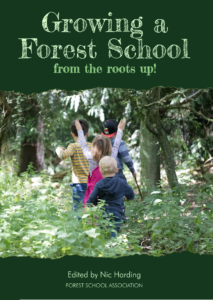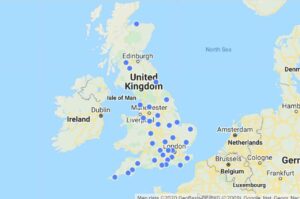 If you go down to the woods today, you’ll find two-year-old Freddie Goulden prising a warm, sticky marshmallow off the tip of a twig, straight from an open fire, and appraising it with glee.
If you go down to the woods today, you’ll find two-year-old Freddie Goulden prising a warm, sticky marshmallow off the tip of a twig, straight from an open fire, and appraising it with glee.
Next up, is scavenging for “magic stones” (he’ll use those to make a necklace for Mum) and a spot of mud-pie baking. By the time Pippa Goulden arrives to collect her two-year-old son, he’ll be sporting a thick layer of the stuff – and a defiant grin.
“You can tell how much fun he’s had by the amount of the dirt he comes back in,” laughs the 35-year-old PR executive, as she peels multiple layers of sodden waterproofs and thermals from her ebullient toddler.
Freddie is a proud member of Little Forest Folk (LFF), one of a growing number of outdoor nurseries in the UK – where children learn through outdoor play, all day, all year round – following in the Scandinavian ‘forest school’ model, developed in the 1950s, and now spreading like wildfire over here.
The Scandi school invasion has been bubbling away for some time – the first forest school programme was introduced to Britain by Somerset’s Bridgewater College in 1993, after a group of nursery nurses and lecturers were inspired by a visit to Denmark, and witnessed the benefits to children’s well-being and development.
But devotees say the need for them has never been more urgent: a report last month revealed British children are among the most housebound and screen addicted in the world, with three in four spending less time outdoors than the recommended daily period of outdoor exercise for prisoners – and more than half being unable to identify a British oak tree.
Open fires, pointy sticks and pools of mud: forest schools’ educational tools of choice might sound like a parent’s nightmare in the making, but Danish research showed giving children the space to take supervised risks and explore boundaries resulted in them demonstrating greater socially capability, having fewer days off sick, more ability to concentrate and better co-ordination than children in urban kindergartens …
Read the full article on The Telegraph website (first published 6/4/16 by Alix O’neil)




